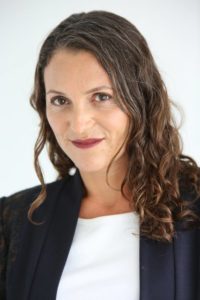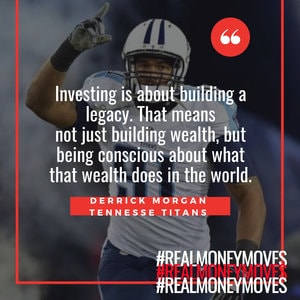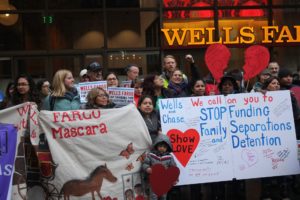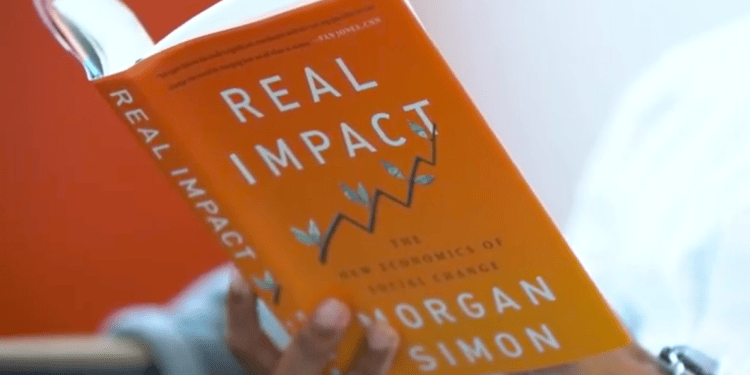After watching Ava DuVernay’s documentary “13TH,” football player Derrick Morgan made a call to his investment advisor. The film’s title is a reference to the 13th Amendment of the U.S. Constitution, which abolished slavery “except as a punishment for crime.” Through archival footage and interviews, DuVernay draws a line through American history to connect this exception clause directly to today’s mass incarceration crisis and booming private prison industry. In a recent interview, Morgan, the recently retired linebacker for the NFL’s Tennessee Titans, said that he credits DuVernay’s film with prompting him to reach out and “make sure that my money wasn’t invested in prisons.” The film, Morgan says, “woke me up.”
Morgan has partnered with the impact investor Morgan Simon and her Real Money Moves movement to awaken more Americans to the grim realities of the private prison industry and inspire them to take action. Morgan says he wants “more people to come to understand that these are publicly held companies and that you might be invested in them.” Real Money Moves aims to do more than encourage people, banks, and organizations to pull their dollars out of private prisons. It wants to inspire the next generation of impact investors to support funds, projects, and ventures that build up the communities that have been harmed most by the industry.
Related Topics: Mass Incarceration – The Impact Economy – Investing in All Children – Financing Women to Improve Communities
To demonstrate their personal dedication to following the consequences of their money, Morgan and a group of other Real Money Moves partners have committed $10 million to social investing. In a joint interview with Morgan for Impakter, Simon told us that this commitment sends the message that, “rather than just focusing on the negative, let’s really put our energy towards investing in the positive.”

The Challenge
According to Simon, the impetus for Real Money Moves was that “private prison companies spend tens of millions of dollars on lobbying that leads to unjust sentencing and immigration policies that lead to more people getting locked up. We need systems of rehabilitation, restorative justice, thoughtful immigration policies. We’re not going to get there if private prisons stand in the way. So, the real objective is to abolish the private prison industry and then have a really thoughtful, comprehensive conversation on how we want to treat people – whether they are from [the U.S.] or seeking to come [to the U.S.].”
Simon is also the co-founder of The Candide Group, a registered investment advisor, and an author who writes about the intersection of finance and social justice. The Stanford Social Innovation Review called her first book, Real Impact: The New Economics of Social Change, “a clarion call to impact investors and a guide for those who genuinely want to do good and do it better.” It was this book that led to her first encounter with Derrick Morgan. After reading Real Impact, Morgan reached out to Simon to learn more about impact investing. They talked for hours, and, at the end of the conversation, a new partnership was born.

A Successful Influence Campaign
To amplify their messages about the connection between private prisons and social injustice and to ramp up pressure on banks that support private prison operators, Real Money Moves strategically partnered with Morgan and over 30 other prominent athletes, activists, and actors – including Alyssa Milano, Natalie Portman, Amy Schumer, and several cast members from Orange is the New Black.
Their campaign to support divestment of privately run detention centers has already pressured eight major banks, including JPMorgan Chase, Wells Fargo, Bank of America, SunTrust, BNP Paribas, and Fifth Third Bank, to agree that they will no longer underwrite loans and bonds for companies that run private prisons and family detention centers. Simon said, “those eight banks represented an estimated 87% of financing within the private prison system. We’ve already seen credit ratings being downgraded. This is not just a symbolic action. If they can’t get bank financing, these companies can’t build new facilities.”
Editor’s Picks:
 “Hungry for data, starving the world”
“Hungry for data, starving the world”
 “Increasing diet diversity in low-income communities”
“Increasing diet diversity in low-income communities”
Where Does Your Money Spend The Night?
The movement’s success has been helped by partners like Morgan who are using their voices and platforms to amplify the movement’s message. But, Simon says, the movement will only achieve its ultimate goal if all of us pay more attention to the impact of our dollars. She hopes to see people do more than just “hand over money to a bank or financial advisor.” We must “follow the consequences of [our money/investments] and make sure it’s aligned with [our] values all the way through.”
According to Simon, Real Money Moves wants to, “get across the idea that it doesn’t matter if you have one hundred dollars or one million dollars – all of us are part of the banking system.” Her hope is that greater awareness will lead to empowerment.
We want everyone to reclaim power over [their money] and be able to say, ‘if I’m depositing my money in the bank, I have a right to know where it spends the night and that it’s supporting my values. I don’t want to be building wealth for my family by locking up someone else’s.’ – Morgan Simon
Beyond changing how people bank, Real Money Moves is urging people to change how they invest. “With impact investing, especially if you are taking a 100% approach, you don’t have to worry,” Morgan said. “You just know that your money is working for social good all of the time.”

Moving Beyond Divestment and Into Impact
Real Money Moves has plans to influence leaders of the ESG/impact investing movement to make the field more accessible for newcomers. In October, Morgan and Simon will appear together on two panels at this year’s Social Capital Markets (SOCAP) Conference in San Francisco. SOCAP is one of the oldest and largest gatherings of the global impact marketplace. Both Morgan and Simon will participate in panel discussions focused on impact investing, their work with Real Money Moves and Opportunity Zone Funds, and their efforts to end family detention.
Shortly before announcing his retirement from the NFL, Morgan worked with Simon and others to establish the KNGDM Impact Fund, which is raising $50 million to invest in real estate and operating businesses in underserved, overlooked communities that have been designated as Opportunity Zones. Morgan said, “aside from divestment, people want to know the next steps they can take to put their money to good use. I think the Opportunity Zone program is a tool to help facilitate that.”
Simon wants to appeal to the impact investing community at SOCAP to “make sure that we are crafting messages and on-ramps in a way that is really accessible to people.” Morgan believes that voices like his can help spread awareness of what impact investing can do, but the industry will need to be more accessible. He said “when you mention investment, too many people think ‘oh well I can’t participate in that.’ We need to open it up to more people and encourage mass adoption.” With increased awareness, accessibility, and participation, we can finally get our money out of private prisons and back into communities.

Click here to see the full conversation between Derrick Morgan and Morgan Simon: What’s Your Legacy? Derrick Morgan and Morgan Simon on Impact Investing.
Click here to see a shortened, four-minute version of their conversation: CG Newsletter August 2019.






